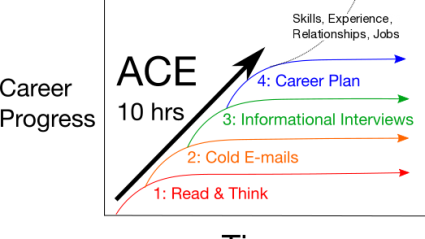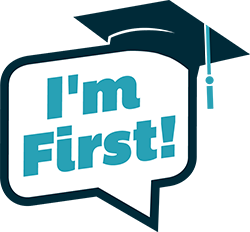“Be okay with being uncomfortable.” This is a quote that I read every day to remind myself that there may be days when I feel that I am not qualified enough to accomplish my goals. In my younger days, I was never afraid to experience things for the first time that were out of my comfort zone. Through life’s experiences, I saw self-doubt and imposter fears encroach on my fearlessness, and I had to develop strategies to work through these emotions.
As a postdoc, I wrestled with the decision not to become a faculty member running a large research group (Principal Investigator, or PI). Truth be told, I had never wanted to be a PI. As an undergrad I saw the job my PI had at a large state school, and it did not entice me. That said, I did think academics might be the way for me, so I went to grad school with a goal to be a faculty member at a small college.

If you are new to the NIH, then welcome! No matter whether you are a summer intern, a postbac, or even a postdoc, starting a new position can feel stressful. You are most likely excited about this new opportunity and eager to make a good impression. Learning new names, discovering the location of supplies, and generally feeling comfortable in a new role can take quite a bit of time. Here are some tips to help make your transition a success:
One of the current trends in the application process for industry positions is to use video interviewing. Currently, business, science, and technology companies are using video interviews as the first step in the interviewing process after a candidate applies for a position because it saves money and staff time for the firms to screen candidates prior to inviting them for face-to face interviews.
In the OITE we are often asked about the career paths of former postdocs. While we do not conduct mandatory exit surveys, we do have some data from the OITE NIH Alumni Database. This database is populated as fellows leave the NIH. To date it contains about 1100 entries. Of those, 639 contain career information that we have been able to analyze. Caveat: this information is only from former trainees who have voluntarily created entries in the database; it does not capture the full range nor percentage of actual career paths*.
One of the most challenging questions that developing scientists must answer is, “Should I pursue an academic or industry career?” For some, the pursuit of an academic career is their path of choice.


If you are the first in your family to attend college, you may have already experienced some challenges or concerns like: not knowing many contacts in the fields of science or medicine through your circle of family and friends or feeling like an imposter and wondering if you really belong in various professional groups or meetings. You are not alone. Research shows that first generation college students often have concerns like these, but research also highlights many of the strengths which first generation students bring to their lives and careers including:

Job Title & Organization: Associate Research Project Manager, MedImmune
Location: Gaithersburg, MD
How long you’ve been in your current job: 8 months
Postdoc Advisor, IC (when at NIH): Dr. Ligia Pinto

